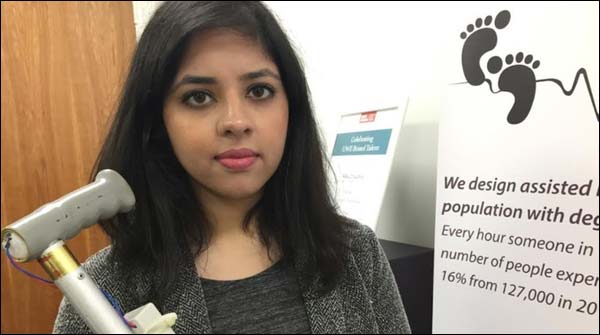A Pakistani student, Neha Chaudhary has developed a stick through the newest technology which promises to cure the patients who are suffering from Parkinson disease.
Essentially the stick may well prove to be an answer to the effects of the disease. It is expected to be advantageous to thousands of patients around the world.
Also Read: Mental health – Best jobs that allow you to help people
Neha’s father, her muse behind her invention
During her study at University of West England (UWE), Neha thought about developing a treatment to the disease of Parkinson that has caused 12,500 patients in Britain alone. Neha closely observed this disease when her father was a victim of this ailment. Due to the seizure of his muscles, her father received some serious injuries in addition to becoming unable to walk.
The stick brings about a movement in the frozen muscles of a patient. As a result, it empowers them to walk again. It is pertinent to mention that the stick has been designed in such a manner that it remains convenient for the patients to use. The design of the stick is simple and plain.
According to Neha, this invention is her biggest accomplishment so far. Parkinson is among the few ailments which still lacks proper and efficient treatment. Neha started working on this project in 2014 as her university’s final year project.
Quick Read: EsoGlove – Robotic glove aids disable people regain hand movements
International recognition
The newly-developed treatment has already been tested on plenty of people in England. Both Parkinson’s organization in England and National Health Services (NHS) have exhibited immense interest in Neha’s impeccable project.
Unsurprisingly, Neha has also formed her own company by the name of ‘Walk to Beat’. The young prodigy from Pakistan said:
“When the patients were given the sticks they were overcome with immediate joy. Majority of them expressed satisfaction that the stick does actually work”
A light-weighted stick which is made of plastic is easy to carry around. Additionally, the sensors which are installed in the stick activates the muscles of patients of Parkinson who are then able to walk again on their feet.



